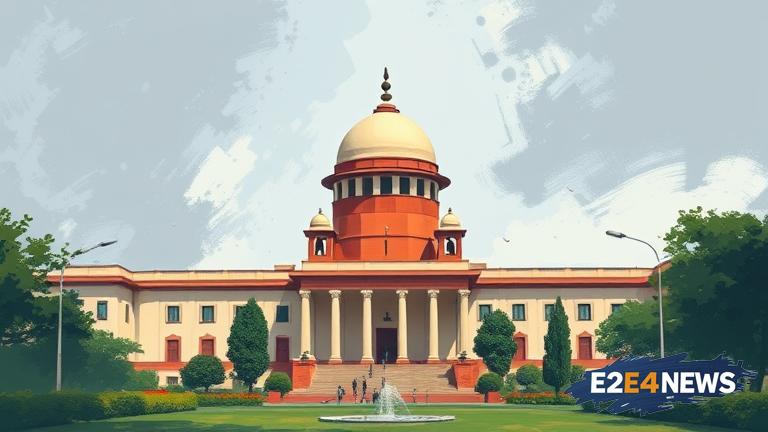In a landmark judgment, the Bombay High Court has stated that past overstays cannot be considered a valid reason to deny furlough to prisoners. This decision is expected to have far-reaching implications for the Indian prison system. The court’s ruling emphasizes the importance of considering the individual circumstances of each prisoner when determining their eligibility for furlough. The judgment highlights the need for a more nuanced approach to prison policies, taking into account the unique needs and circumstances of each prisoner. The court’s decision is based on the principle that prisoners have the right to be treated with dignity and respect, and that past mistakes should not be used to deny them opportunities for rehabilitation. The ruling is seen as a significant step forward in the country’s efforts to reform its prison system. The Indian prison system has long been criticized for its harsh conditions and lack of rehabilitation programs. The court’s decision is expected to pave the way for more prisoners to be granted furlough, allowing them to reintegrate into society and rebuild their lives. The judgment also underscores the importance of providing prisoners with access to education, counseling, and other rehabilitation programs. By granting furlough to prisoners who have demonstrated good behavior, the court is recognizing the importance of rehabilitation and reintegration. The decision is also seen as a reflection of the country’s commitment to upholding human rights and ensuring that prisoners are treated with dignity and respect. The Bombay High Court’s ruling is expected to set a precedent for other courts in the country, and is likely to lead to a review of prison policies nationwide. The judgment has been welcomed by human rights activists and prison reform advocates, who have long argued that the country’s prison system is in need of reform. The court’s decision is also seen as a recognition of the importance of rehabilitation and reintegration in reducing recidivism rates. By providing prisoners with opportunities for rehabilitation and reintegration, the court is helping to reduce the likelihood of prisoners reoffending. The ruling is also expected to have a positive impact on the mental health and well-being of prisoners, who will now have access to more opportunities for rehabilitation and reintegration. The court’s decision is a significant step forward in the country’s efforts to create a more just and equitable society. The judgment highlights the importance of treating prisoners with dignity and respect, and recognizing their fundamental human rights. The ruling is also seen as a reflection of the country’s commitment to upholding the principles of justice and fairness. The Bombay High Court’s decision is expected to have a lasting impact on the Indian prison system, and is likely to lead to a more nuanced and compassionate approach to prison policies. The judgment is a significant milestone in the country’s efforts to reform its prison system, and is expected to pave the way for more positive changes in the future. The court’s ruling is also seen as a recognition of the importance of rehabilitation and reintegration in reducing crime rates and creating a safer society. By providing prisoners with opportunities for rehabilitation and reintegration, the court is helping to create a more just and equitable society. The decision is a significant step forward in the country’s efforts to create a more compassionate and humane prison system.





